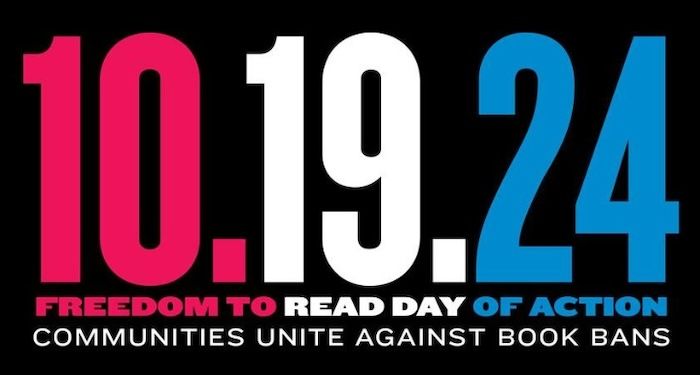
This content contains affiliate links. When you buy through these links, we may earn an affiliate commission.
Welcome to Today in Books, our daily round-up of literary headlines at the intersection of politics, culture, media, and more.
Take Action for the Freedom to Read
Tomorrow, October 19, PEN America is hosting a Freedom to Read Day of Action in partnership with libraries, readers, and writers across the U.S. Through more than 100 events in 35 states, the organization seeks to educate the public about the myriad ways book bans harm students and educators and provide them with information about how to fight back.
The best antidotes for election anxiety are information and action, and the Freedom to Read Day of Action provides opportunities for both. Find an event, grab a friend, and get to work.
How Did Holocaust Stories Become Beach Books?
In a guest post for Maris Kreizman’s newsletter, Ilana Massad explores the popularity of light/inspiring/beachy/romantic fiction set in and around the Holocaust to ask, “what happens when we sell real-life suffering for light entertainment?” Citing examples like The Tattooist of Auschwitz, Massad defines the Holocaust Beach Read as a book about the Holocaust that “keeps a reader engaged without being serious enough to put a damper on their good vibes.” As she asks who these books are for, she invites us to consider how transmuting one of the greatest atrocities in human history into digestible stories might deny the humanity of its victims and erode our ability to engage with the horrific reality.
Refusing to look at the way real victims of the Holocaust had to make hard choices, amoral as well as moral choices, is a way of flattening them, as is the creation of a sellable genre that is dedicated entirely to a certain group of people and their saviors. These books that craft Jewish characters to embody the endurance of the human spirit in all its nobility are, in fact, denying these characters’ humanity.
Massad offers a thoughtful examination of a generally well-intended but often problematic trend, and I’d love to see it prompt a broader conversation in the industry about the place and purpose of these titles.
Every Appalachian Writer is an Environmentalist
As communities in western North Carolina continue the long recovery from hurricane Helene, Kendra Winchester reflects on why every writer from Appalachia is an environmentalist. Sharifah Williams, Book Riot’s director of content and a resident of Asheville, NC, also shares her experience living with Helene.